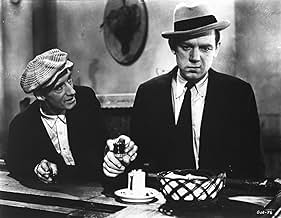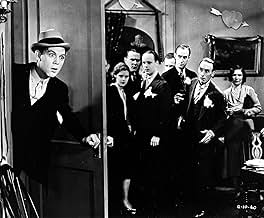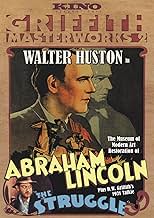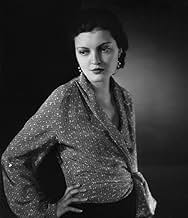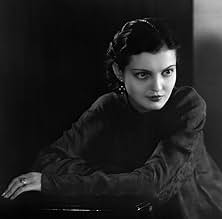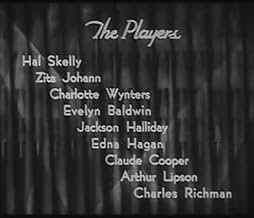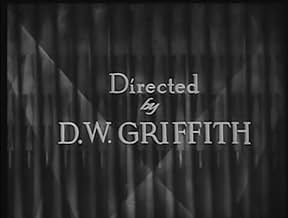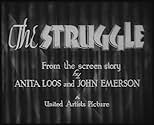Adicionar um enredo no seu idiomaA young couple's marriage is jeopardized by the husband's descent into alcoholism.A young couple's marriage is jeopardized by the husband's descent into alcoholism.A young couple's marriage is jeopardized by the husband's descent into alcoholism.
Kate Bruce
- Granny
- (não creditado)
Tammany Young
- Barfly
- (não creditado)
- Direção
- Roteiristas
- Elenco e equipe completos
- Produção, bilheteria e muito mais no IMDbPro
Enredo
Você sabia?
- CuriosidadesThis was the final feature-length film directed by D.W. Griffith.
Avaliação em destaque
I hesitated for some time before seeing "The Struggle" because it was considered by most critics to be a pathetic boring mess done by a broken man. I knew it was Griffith's final film and I didn't want to see this great master produce a terrible film at the end of his career. When I finally did view it I found that a film that is full of passion, new ideas and bold innovative strokes.
There are several innovations in the use of sound. At the time actors were careful to talk one after the other because it was thought that people talking at the same time would be too confusing for the audience. Griffith used overlapping dialog and a party scene with multiple background sounds of music and talking as well as dialog. This sounded far more natural. Also at this time actors were being told to use artificial elocution and diction when speaking on screen. They usually sounded either foreign or very upper crust. Griffith had his actors use natural accents. Hal Skelly and Zita Johnson sound like normal people who talk fast use slang and sometimes slur their words.
The most impressive innovation was in Griffith's development of the plot. The story of a man who sinks into alcoholism could and would normally be treated as a moral lesson against the evils of drink. In Griffith's hands it is personal tragedy that has to do with the strength's and weakness of the individuals involved. Jimmy becomes an alcoholic because of his own personality traits and whatever redemption he achieves is due to the strength of his love for his wife and his daughter. There is no preaching here. Griffith had done a similar film called "Isn't Life Wonderful" in Germany which influenced German filmmakers particularly Pabst in his "Joyless Street." "Joyless Street" is innovative in it's own right but it is clear where its inspiration comes from when whole sections of it are lifted from "Isn't Life Wonderful".
"The Struggle" was a financial failure. Without enough personal funds and without the confidence of any backers, Griffith would never make another film. He had lost touch with his audience. Caught in the middle of the Great Depression, American audiences wanted a moral lesson so they could fix blame, or pure escapism. The last thing they wanted was a complex personal drama to remind them of their own complex personal problems. It would be a long time before films like this would be made in America. But although Griffith had lost his audience, enough creative artists must have seen and been influenced by this film, because starting with films like Citizen Kane, we began to see films about difficult problems treated as stories that were personal to the characters involved and not as moral lessons.
There are several innovations in the use of sound. At the time actors were careful to talk one after the other because it was thought that people talking at the same time would be too confusing for the audience. Griffith used overlapping dialog and a party scene with multiple background sounds of music and talking as well as dialog. This sounded far more natural. Also at this time actors were being told to use artificial elocution and diction when speaking on screen. They usually sounded either foreign or very upper crust. Griffith had his actors use natural accents. Hal Skelly and Zita Johnson sound like normal people who talk fast use slang and sometimes slur their words.
The most impressive innovation was in Griffith's development of the plot. The story of a man who sinks into alcoholism could and would normally be treated as a moral lesson against the evils of drink. In Griffith's hands it is personal tragedy that has to do with the strength's and weakness of the individuals involved. Jimmy becomes an alcoholic because of his own personality traits and whatever redemption he achieves is due to the strength of his love for his wife and his daughter. There is no preaching here. Griffith had done a similar film called "Isn't Life Wonderful" in Germany which influenced German filmmakers particularly Pabst in his "Joyless Street." "Joyless Street" is innovative in it's own right but it is clear where its inspiration comes from when whole sections of it are lifted from "Isn't Life Wonderful".
"The Struggle" was a financial failure. Without enough personal funds and without the confidence of any backers, Griffith would never make another film. He had lost touch with his audience. Caught in the middle of the Great Depression, American audiences wanted a moral lesson so they could fix blame, or pure escapism. The last thing they wanted was a complex personal drama to remind them of their own complex personal problems. It would be a long time before films like this would be made in America. But although Griffith had lost his audience, enough creative artists must have seen and been influenced by this film, because starting with films like Citizen Kane, we began to see films about difficult problems treated as stories that were personal to the characters involved and not as moral lessons.
- fred3f
- 14 de fev. de 2006
- Link permanente
Principais escolhas
Faça login para avaliar e ver a lista de recomendações personalizadas
Detalhes
- Data de lançamento
- País de origem
- Idioma
- Também conhecido como
- Ten Nights in a Bar Room
- Locações de filme
- Empresas de produção
- Consulte mais créditos da empresa na IMDbPro
- Tempo de duração1 hora 27 minutos
- Cor
- Proporção
- 1.20 : 1
Contribua para esta página
Sugerir uma alteração ou adicionar conteúdo ausente


